 As the global market for high quality kitchen cabinets continues to evolve, it is crucial for manufacturers and consumers alike to understand the emerging trends and demands that shape this industry. Recent reports by Grand View Research indicate that the global kitchen cabinets market is expected to reach $90 billion by 2027, driven primarily by the increasing demand for customized and durable solutions that enhance home aesthetics and functionality.
High quality kitchen cabinets are at the forefront of this growth, as homeowners prioritize not just style, but also longevity and sustainability in their choices. Additionally, the rise of smart homes and innovative technologies is further influencing consumer preferences, making them more inclined toward premium cabinetry that integrates seamlessly with modern appliances.
Understanding these dynamics will be essential for industry stakeholders aiming to capitalize on future opportunities in the high quality kitchen cabinets segment.
As the global market for high quality kitchen cabinets continues to evolve, it is crucial for manufacturers and consumers alike to understand the emerging trends and demands that shape this industry. Recent reports by Grand View Research indicate that the global kitchen cabinets market is expected to reach $90 billion by 2027, driven primarily by the increasing demand for customized and durable solutions that enhance home aesthetics and functionality.
High quality kitchen cabinets are at the forefront of this growth, as homeowners prioritize not just style, but also longevity and sustainability in their choices. Additionally, the rise of smart homes and innovative technologies is further influencing consumer preferences, making them more inclined toward premium cabinetry that integrates seamlessly with modern appliances.
Understanding these dynamics will be essential for industry stakeholders aiming to capitalize on future opportunities in the high quality kitchen cabinets segment.
The growing demand for sustainable materials in kitchen cabinet production is transforming the landscape of the global furniture market. By 2024, the global home décor market is projected to be valued at $747.75 billion, with significant contributions from sustainable practices in manufacturing. The kitchen cabinet market alone is expected to witness a healthy compound annual growth rate (CAGR) of 4.15%, growing from $16.97 billion in 2025 to approximately $23.49 billion by 2033. As consumers become increasingly eco-conscious, the utilization of materials like wood, MDF, and particleboard is becoming essential, driven by government initiatives promoting sustainability in the construction industry.
Tips for Sustainable Kitchen Cabinet Choices:
Moreover, the demand for customizable options is on the rise, as homeowners seek personalized elements in their kitchen spaces. This growing trend of bespoke cabinetry is not just about style; it reflects a broader movement toward creating functional yet sustainable living environments. With ongoing innovations and an emphasis on eco-friendly practices, the kitchen furniture sector is poised for a sustainable transformation that resonates with modern consumers’ values.
The kitchen cabinet market is evolving rapidly, driven by emerging trends in innovative designs that cater to modern consumer preferences. From sleek minimalism to vibrant colors and multifunctional spaces, today's kitchen cabinets are not just about storage—they reflect the lifestyle and aesthetic choices of homeowners worldwide. One prominent trend is the integration of smart technology, allowing homeowners to manage their kitchen environments more efficiently. This innovation enables features like automated lighting and temperature control, enhancing both functionality and comfort.
Tips for choosing the right kitchen cabinets include considering the material and finish that best suit your style and durability needs. Opt for materials that are easy to clean and maintain, such as high-quality laminates or solid wood. Additionally, explore customizable options to maximize space in smaller kitchens, ensuring that every inch serves a purpose.
Another key trend is the focus on sustainability. Consumers are increasingly seeking eco-friendly materials and production methods. Look for brands that prioritize sustainable sourcing and offer recycled or upcycled options in their cabinet lines. This not only benefits the environment but also appeals to the growing demographic of environmentally-conscious buyers.
The cabinet manufacturing industry is rapidly evolving, driven by the integration of advanced technologies that enhance efficiency and sustainability. As manufacturers adopt digital tools and data analytics, they are not only improving operational efficiency but also addressing the ongoing skills gap that has affected productivity. With the anticipated growth of the kitchen cabinets market, projected to reach USD 33.85 billion by 2033, there is a strong emphasis on innovation and targeted investments in technology.

Sustainability has become a critical focal point in cabinet finishing processes as regulatory pressures and consumer demands for environmentally responsible products continue to rise. By implementing eco-friendly practices and cutting-edge technologies, manufacturers can improve performance while reducing the environmental impact of production. Embracing these trends allows companies to remain competitive in a market that increasingly values both quality and sustainability.
As the industry adapts to these changes, the future of high-quality kitchen cabinets will likely reflect a harmonious blend of technology, efficiency, and environmental consciousness.
The global market for high-quality kitchen cabinets is experiencing robust growth, largely driven by the increasing demand for functional and aesthetically pleasing home environments. According to recent market research, the kitchen cabinet segment is projected to reach a valuation of over $20 billion by 2032, expanding at a compound annual growth rate (CAGR) of approximately 5% from 2023 onwards. This growth is particularly influenced by demographic shifts, with younger families seeking modern designs that maximize both space and utility in their homes.
Key players in the high-quality cabinet market are focusing on innovative manufacturing techniques and sustainable materials to enhance product offerings. Moreover, the COVID-19 pandemic has shifted consumer preferences towards home improvement, as more individuals invest in their living spaces. The rise of remote work has fueled an increased interest in multifunctional furniture, particularly in establishing home office settings that incorporate space-saving solutions. As a result, there is a notable surge in the market for foldable office desks and sofas, catering to the evolving needs of modern households. The competitive landscape remains dynamic, with established brands continually adapting to consumer trends while newer entrants challenge the status quo with unique designs and sustainable practices.
As the global market for high-quality kitchen cabinets continues to evolve, understanding consumer preferences and purchasing behaviors becomes increasingly crucial. Today’s consumers are not only looking for aesthetics but also functionality and sustainability. They often prioritize cabinets that blend innovative design with eco-friendly materials, reflecting a broader trend toward environmentally conscious living. As a result, manufacturers are responding with a diverse range of options that cater to both traditional and modern tastes.
Tip: When selecting kitchen cabinets, consider exploring options made from sustainable materials. Look for certifications such as FSC (Forest Stewardship Council) to ensure that your choices are environmentally friendly.
Additionally, the rise of online shopping has reshaped how consumers approach their purchases. Many shoppers now prefer to research options, compare prices, and read reviews before making decisions. This shift emphasizes the need for companies to enhance their online presence, providing detailed product descriptions and high-quality images that help consumers envision their kitchen transformations.

Tip: Take advantage of virtual design tools offered by many cabinet retailers. These tools can help you visualize how different styles and finishes will look in your home before you commit to a purchase.
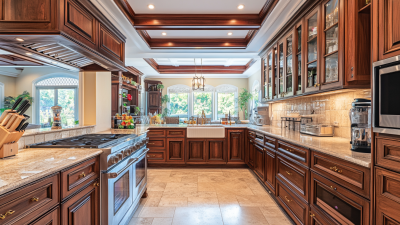
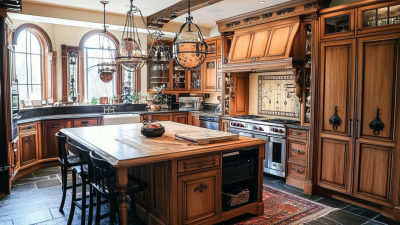
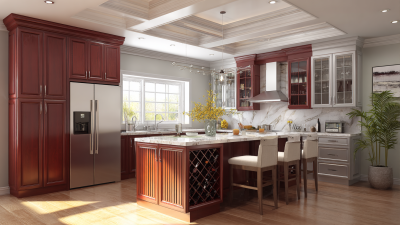
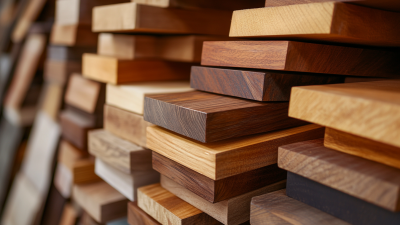
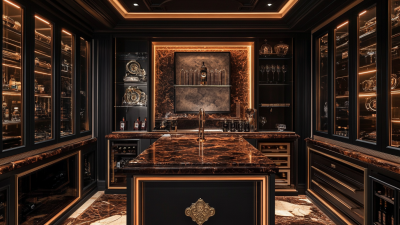
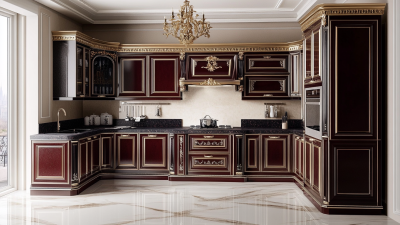
Whether you’re a homeowner, builder, or designer, you’ll find that our elegant cabinets create a breathtaking space that evokes positive emotions and encourages lasting memories. We invite you to explore our website to learn more about who we are and how we can help you.
Woodinville | Bellevue | Seattle | Kirkland | California | Berkeley | Walnut Creek | Roseville, CA
© 2025 Acadia Craft. Powered by Integrity Marketing Serving Woodinville, Kirkland, Bellevue & The Greater Seattle Area
